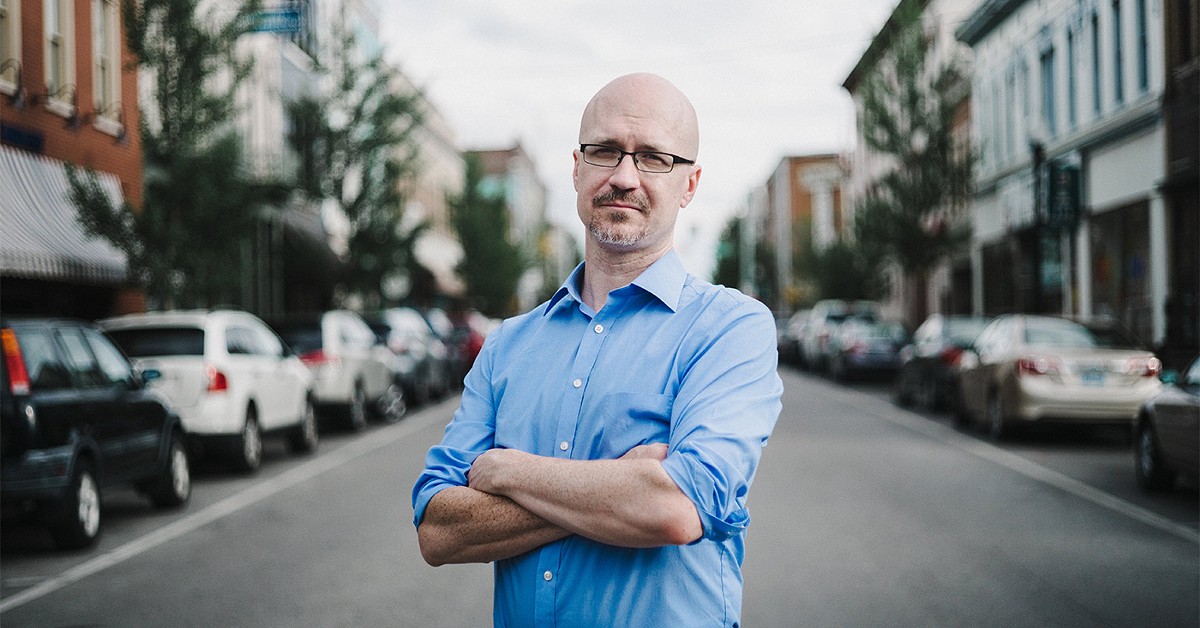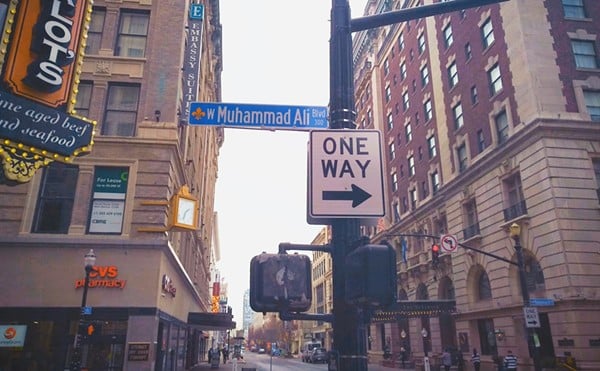It’s been a little over a month since ICE rounded up about 700 immigrants in Mississippi, most of whom were engaged in the reprehensible act of working jobs that will never be filled again and putting food in bellies that might not be filled again for a long while. The workers were put on the proverbial cattle cars (though perhaps they are literal by now; history is moving ever faster into the past) and sent to the proverbial concentration camps (though we know at least some of those are literal). There, for the crime of being in a location on planet Earth without the right pieces of paper, they will be treated worse than the worst American criminals: stacked on top of each other, denied toothbrushes and soap and moved hundreds of miles across the country without word to the little bellies they left behind. After months, or perhaps years of incarceration, they will be sent back to devastating poverty, unimaginable violence or a failing state they’ve never known, or some combination of the three.
When this happens (and it will continue to happen), conscientious folks tend to get upset. When people get upset, I get calls. “What can we do to stop the raids?” “How do I protect the nice family I know from church?” “Who do we sue over this shit?”
To spare you the call, I can tell you now: I don’t know.
Some problems are just too big to be solved by lawyers, or they’re beyond my capacity, or they’d be better handled by someone or something else. Sometimes ad hoc solutions flash for just a second of the hellbound Himalaya ride of the daily American news cycle, like the incident a few months back in which neighbors of a migrant family in Nashville successfully formed a human chain to protect them from ICE. But such fixes seem anomalous, almost magical and defiant of easy replication. A group of people decided they weren’t going to take it anymore, and so they did what made sense at the time. How could anyone recreate that?
Only in posing the question that way do I realize there’s an identifiable reason why I don’t have an answer. It’s not because my legal experience is lacking; the problem is not really a legal one. Rather, it is a question of whether, when and why our collective memory often fails us in circumstances such as these. I don’t know the solution for the same reason the caller doesn’t know: We were never taught.
We were never taught about the several thousand armed colonists who poured into the streets of Boston in 1747, all for the sake of a few civilians who were to be forcibly conscripted into the British Navy. The crowd beat back a British commander, took a sheriff’s deputy hostage, stormed the State House and burned a barge on the governor’s lawn.
Nor were we taught about United Mine Workers in Colorado, who in 1913 organized a strike for better pay and an eight-hour workday. Company goons and the Colorado National Guard burned one of the camps, killing 21 people, many of them immigrants. Then the 1,200 remaining miners spent 10 days attacking a 40-mile stretch of mines. Dozens died before federal troops came to disarm everyone, but this was one of the major incidents that led to child labor laws and tolerable work weeks.
We were never taught about the Chavez farmworker uprising, or the Black Panthers or the “Bonus Army” of tens of thousands of veterans who marched on Washington, only to have their camps set ablaze by the Hoover administration. Students of my generation were not even taught about the Stonewall uprising, in which hundreds of neighborhood folks chased away police for relentless harassment of Manhattan’s LGBTQ population. Maybe more than half of the people reading this column have heard of Nat Turner or John Brown. Less than half of you are likely to have heard of Carlo Forni, George Boxley or Denmark Vesey. If you learned their stories, you likely learned them in a sentence or two, and as aberrations; the texts they assigned us don’t tend to dwell on stories featuring black slaves and free whites taking up arms together for a common cause.
There’s a grand tradition of discrete categories of underclasses banding together to put a pitchfork in the injustices wrought by law enforcement officers, bosses, plutocrats and oppressors of all sorts. Sadly much of that history — the history of honest-and-bloody solidarity — is lost. What isn’t, might as well be; to learn it, you have to know what you’re looking for and care enough to take a long look. Most of us don’t.
On the other hand, most white folks my age were force-fed a more-than-generous helping of aphorisms by Martin Luther King Jr. and Mahatma Gandhi; aphorisms that collectively amounted to “sit there and take it.” So, we committed those lessons to memory, then to action, then to reflex. Active nonviolence is the correct, perhaps the only, path to change — we are sure of that. And so, instead of burning barges, mines or plantations, we burn out our eyeballs looking at screens for answers. Maybe we’re better off for having these lessons mashed into our collective conscience.
But, maybe not. In the end, it was not active nonviolence alone that ended slavery nor the 72-hour work week nor segregation nor Nazism nor the British occupation of India nor any other ill wrought by any government on any subset of the governed. Even the nonviolent predecessors of Gandhi, Bayard Rustin and MLK knew that it wasn’t quite enough to expose a shamelessly ugly thing; sometimes you also have to teach it shame. Long before the Civil War, University of Amherst professor Samuel Worcester wrote, “I would inquire, whether the slave has not a right to resort to the most violent measures, if necessary, in order to obtain his liberty? ... I firmly believe, that the slave has a right to immediate liberty, paramount to every claim of his master.”
My point is not that violence is great, nor that militant, bottom-up organizing is a better strategy than active nonviolence, even against a shameless foe. My point is that we don’t really know the best way to not-take-it-anymore, so we often end up taking too much. And yet, despite not knowing how, we have fought — really fought — for and alongside each other in different ways for centuries, as the situation demanded. In my view, this elusive historical truth is worth contemplating.
What is the best way to fight, then? That, after all, is the caller’s question — the one that, perhaps by design, I find myself unequipped to answer for now.
Call me again in a few months. •
Dan Canon is a civil rights lawyer and law professor. “Midwesticism”is his short-documentary series about Midwesterners who are making the world a better place. Watch it at: patreon.com/dancanon.






